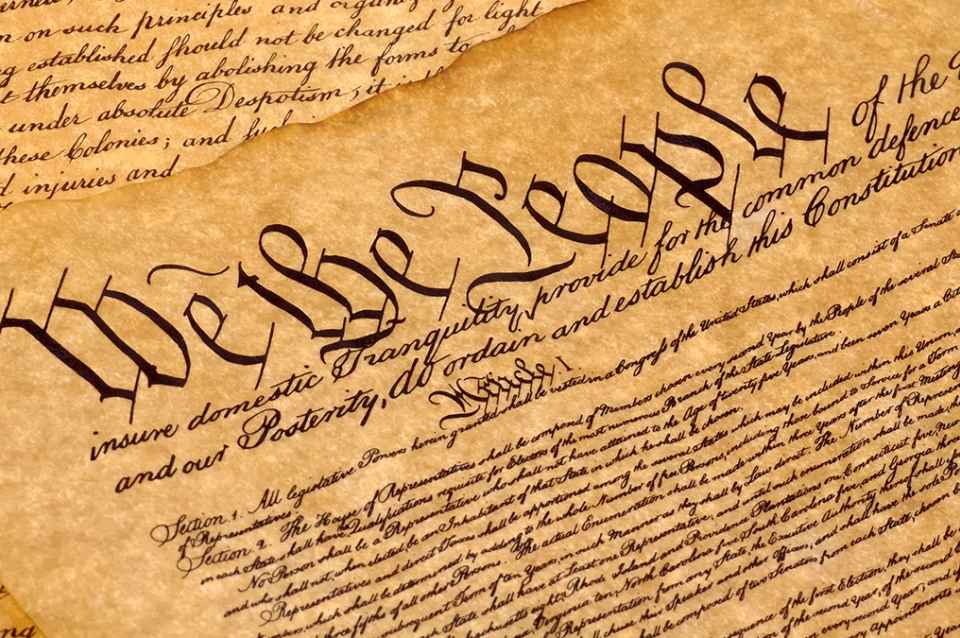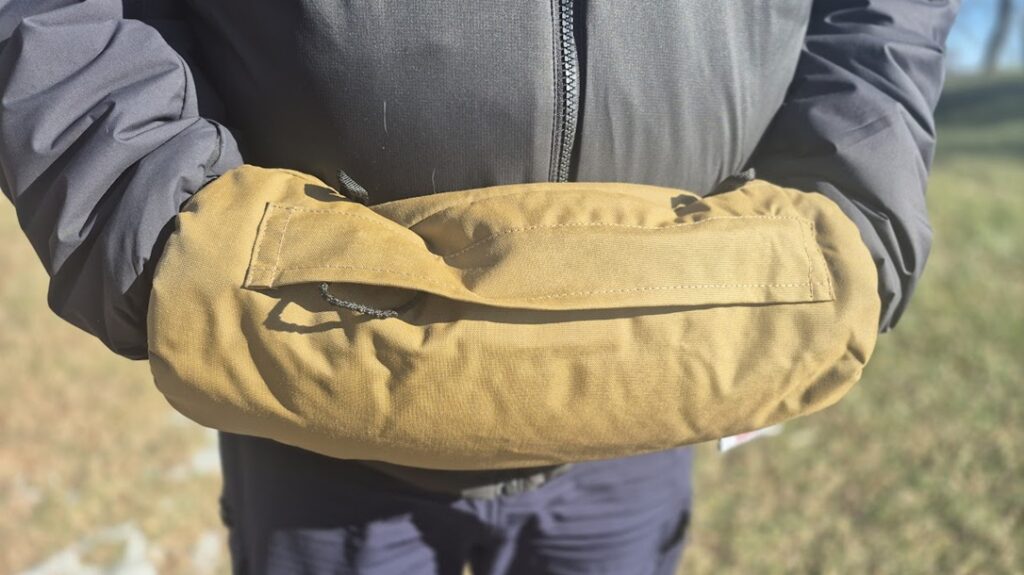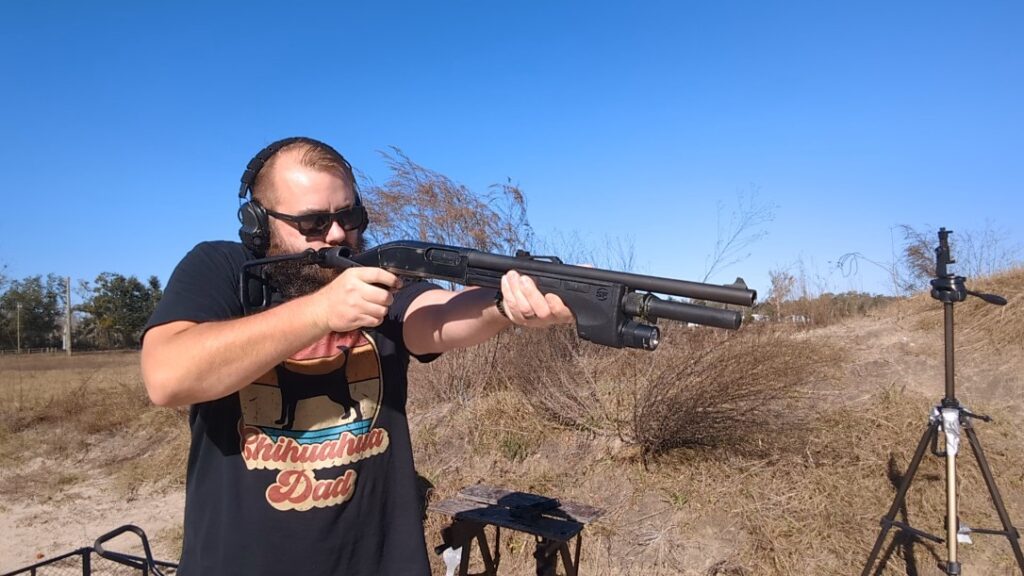Unlike their terrible article on the AR-15, Libby Cathey has a far more informative piece on the 2nd Amendment on ABC today.
Why the Second Amendment may be losing relevance in gun debate
It’s a bit of a misnomer title, but her points are poignant within. The crux of the argument is that the 2nd Amendment itself, doesn’t actually come under legal fire and debate all that often. It is referenced rhetorically constantly, but it in a legal sense is very rarely cited compared to all the other laws dealing with firearms.
Advertisement — Continue Reading Below
State laws are usually the focus, state laws have been used and continue to be used to bolster the simple message of the 2nd Amendment, that the right of the people to keep and bear arms shall not be infringed.
There are a couple points she hits on that I fundamentally disagree with, the first being that the 2nd Amendment didn’t mean an individual right to arms until 2008. That is false, the 2nd Amendment did and that is why Heller was decided. The 2nd Amendment, like the Bill of Rights as a whole, are a list prohibitions on government and an outline of government’s duties. It is not a list of allowances to the people, the people are allowed anything and everything not expressly prohibited or outlined as a function of government. So Heller didn’t say, ‘Starting in 2008 the right of individuals to bear arms is now part of the 2nd Amendment’ it said that a law that the Supreme Court looked at in 2008 violated the constitutional rights of those the law was being applied to. The right existed before, during, and after, but the law was infringing upon it.
The states are also charged with governing it that same framework. This is what Cathey calls ‘Legal’ vs the ‘Judicial’ 2nd Amendments. In short, what the text of the constitution says vs what courts have actually backed with case law.
Advertisement — Continue Reading Below
A similar and contrasting situation is the 2nd Amendment sanctuary movement. Where smaller units of government are prohibiting interference, by law, to larger units of government in firearms law. It is to this point only a theoretical conflict as no state or local unit has gone to the judicial mat against the federal government.
Why is ABC running this now?
My guess is that they expect the Supreme Court to crush the New York ‘May Issue’ permitting system, and thus crush it for the remaining states who use it. The tone of the piece(s), not surprising from Disney owned ABC, is trending neutrally uninformed instead of rabidly anti-gun. Guns aren’t a big piece of their fights, but they are a national issue and in the violent hot spots of the nation violence surged through 2020 and 2021. That makes them informationally relevant at the least.
Among the many issues where the nation is evolving its stances, like dealing with marijuana or dealing with shoplifting, is having an influence in often very partisan directions with fairly predictable results. You decriminalize shoplifting under $950, ban descriptions of suspects because it is prejudicial (somehow), and publicly announce both of those… You have defacto made theft permissible.
Advertisement — Continue Reading Below
Not legal. Permissible. Marijuana is still not federally legal, but across the nation it is essentially permissible in 2021 and that in practical matters is the same thing. Until it isn’t in a courtroom. Removing the 2nd Amendment, making it irrelevant today, sets up a future anti-gun victory in a courtroom.
I suspect ABC is, primarily, setting up an avenue to run criticism of the Supreme Court’s decision in New York State Rifle & Pistol Association Inc. v. Bruen, whose opening arguments start Wednesday.
This is simultaneously an attempt to inform their reader base, something I support, combined with building a base to level the criticism when a likely 6-3 result returns. That result likely turning New York into a shall issue state and requiring them to have criteria independent of bureaucratic discretion for issuing carry licenses and a timeframe they are to be held accountable to.
Advertisement — Continue Reading Below
That, by the way, is the standard in most states. Meeting objective criteria instead of a subjective state decision worded in a manner suggesting an individual must prove a greater than general need for protection in order to carry a firearm. These laws requiring ‘demonstrable need’ have always been prejudicial and biased against the petitioner, unless they had a relationship with the authority issuing the decision. The authority could use their complete discretion and opinion on the issuance of licenses and a petitioner for a license had no mode of redress. The authority’s opinion was all that was legally necessary.
Under a shall issue system the onus for proof is on the state, not the petitioner, the state must prove instead of just decide that a petitioner does not meet the requirements for licensure.
An additional problem is that an above average demonstrable need often takes one of two forms, professional or immediate threat.
Advertisement — Continue Reading Below
For the professional, your line of work would indicate the increased risk to your person. Jewelry shop owner, armed truck personnel, licensed security service professional, etc. These are individuals in a profession with a higher risk of confrontation, yes, and authorizing their carriage of a protective firearm is logical. It is the second part, the immediate or imminent threat of harm to one’s person, where the policy falls completely apart. Waiting for a bureaucrat to decide whether or not you are allowed to protect your life because you have received a credible threat against it is a form of mental torture I cannot, and thankfully have not, had to fathom. Imagine someone you met for a few minutes in a courtroom, where they have a bunch of decisions to make before you and after you leave, deciding whether you have a legal level playing field at living through a threat. That is the reality in New York.
The odd conclusion…
The point of Cathey’s piece is that the 2nd Amendment isn’t needed anymore because we have those other laws to rely on.
The danger, obviously, is that the Constitution is the law, so removing the foundational law on arms could be catastrophic for lesser laws continuation. The law that can be relied upon in a court, and not changed on a whim of the next legislature to something new, bolsters the additional written protections which people are actively trying to remove whenever they see the opportunity. The 2A adds a permanency to the right of arms and self defense that has been under assault for most of the 20th and 21st centuries, which is why the additional laws were passed to protect and define limits more distinctly.
Advertisement — Continue Reading Below
The problem with Cathey’s argument is the complete disregard of the simple phrase, “Shall not be infringed” or defined as to ‘act so as to limit or undermine’ which has actively been argued as the basis for the political ‘all gun laws are infringements’ argument.
Cathey’s argument relies on the fact that we have allowed infringements, therefore we should continue to allow infringements because it meets the ‘Judicial 2A’ standard. It is irrelevant, from a legal standpoint, that a law violates what ‘shall not be infringed’ means in plain english, only that it has not been hammered across that way in a court.
Because courts never make mistakes… I guess?
Advertisement — Continue Reading Below















